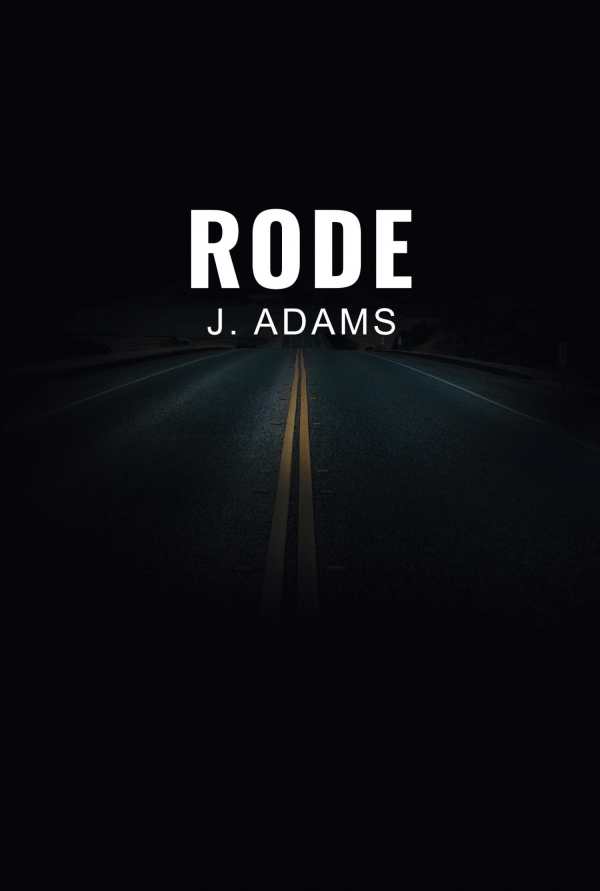Rode
Rode is a moving existential novel about personal identity and human connections.
In J. Adams’s coming-of-age novel Rode, a young man leaves the Southwest to explore his sexuality and to search for meaning.
In the 1990s, twentysomething Jack, reasoning that moving is the easiest means of initiating change, leaves New Mexico to start a new life in San Francisco. There, he meets—and crashes with—others on similar searches for their identity and a sense of enjoyment. He works as a dancer at a gay club, and later as an escort. When he meets and falls in love with Kevin, whom he dates for more than a year, his perspective on LGBTQ+ culture and the AIDS crisis changes. Reconciling himself to his own truths becomes necessary to his growth.
At first, Jack is a hazy lead—unsure of himself, and of what he is trying to escape. His narration varies between being immediate and distant. He seeks connections with people, hoping to feel at peace. His interactions with people in California result in clarity: he is running from himself. He compares himself to others: Kevin, in particular, possesses the sense of direction and self-understanding that Jack feels he lacks. This thread of existential distress runs throughout the otherwise pragmatic prose.
The book’s secondary characters are less fleshed out; because Jack is so aloof, and because his empathy is clouded, their actions and emotions are covered in distant terms. Letters addressed to Kevin two years hence are interspersed throughout the book; they are a glimpse into how Jack’s perspective changed during his time in California.
The time period is captured via references to the growing popularity of cellular phones—and to the fact that the AIDS crisis is still in full swing, with treatments just becoming more accessible. Jack’s fear of the disease, and his internalized homophobia, also reflects the period. He dates women in Albuquerque and men in San Francisco, as if his sexuality and identity are reliant upon his locale. But after two years, what at first seemed like a vacation from Jack’s family’s expectations—and his job as a firefighter—is clarified as an opportunity for transformation. The book is moving in acknowledging Jack’s earlier capacity for suppressing his inner reality, and it also critiques environments that do not allow room for people to flourish.
Set against the tangible backdrop of San Francisco’s LGBTQ+ community, Rode is a moving existential novel about personal identity and human connections.
Reviewed by
Aimee Jodoin
Disclosure: This article is not an endorsement, but a review. The publisher of this book provided free copies of the book and paid a small fee to have their book reviewed by a professional reviewer. Foreword Reviews and Clarion Reviews make no guarantee that the publisher will receive a positive review. Foreword Magazine, Inc. is disclosing this in accordance with the Federal Trade Commission’s 16 CFR, Part 255.

